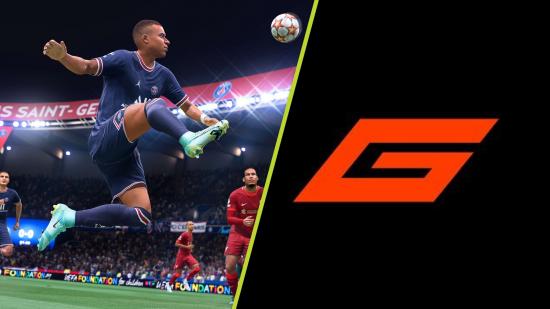Swedish gaming startup GOALS has released a massive, 6,000 word manifesto outlining how it intends to create a web3-ready competitive football game that it hopes can topple industry leaders like EA Sports’ FIFA series.
GOALS was first announced last year, and the studio was formed by the founder of esports organisation SK Gaming, Andreas Thorstensson. The game was tipped to be a free-to-play title with competitive gameplay and esports at its heart, and it was also going to include blockchain technology to allow for player-owned and traded items – a strategy that has often seen criticism levelled at other publishers or developers.
However, the long document released on GOALS’ website explains exactly how this technology will work and how players can still participate in the game without having to engage with in-game trading. GOALS will generate and mint NFT players that can be earned by players as gameplay-based rewards, and these players can be both trained and improved or traded by the owner. Trading, however, is described as “completely optional”.
To eliminate pay-to-win concerns – which is both a big pitfall of FIFA’s Ultimate Team mode and a general concern around NFT assets in competitive games – GOALS will have separate matchmaking queues and tournaments for “first-owner” teams (consisting solely of players earned in-game) and teams that include market-traded players.
GOALS, as the developer, will aim to monetise the game by claiming royalties on any trades and sales of player-owned assets, which it believes is a fair business model considering the game “will not rely on microtransactions” of any kind and is free-to-play.
The individual footballers you can earn or buy in GOALS will not reflect real-world players directly, as the game will not look to snap up official licenses like FIFA and other rival games like UFL and eFootball have. Each player will have a very FIFA-esque set of overarching traits – or “performance genes” – such as shooting, defending, and dribbling, which directly affect in-game stats and performance. These can be improved by sending players to “training camps”.
Read GOALS Game Design Reveal NOW🔥
As revolutionizing as traditional football games once were, it is time for a new era.
If you are the best, play the best! ⚽
➡️https://t.co/xLVeHM17Pv#GOALSGameDesign pic.twitter.com/iKNR9NHuyy— GOALS (@PlayGOALS) April 5, 2022
Each new player generated in GOALS will also be randomly assigned an age. Similarly to FIFA’s career mode, older players will have better stats to begin with, but will be harder to improve and have a shorter shelf life. Younger players will have worse stats but can be more easily developed.
While each footballer is owned by the player as a tradeable asset, there will be retirement. However, players can choose to immortalise a player and keep them in their squad forever by converting them into a “legend”. While you can own an infinite number of legends, the amount you can actually field in a squad to compete with will be restricted.
In terms of actual gameplay, GOALS is clearly prioritising fairness and competitive integrity over realism – in an interview with Sifted, Thorstensson says there is an “arcade kind of approach” to gameplay.
The manifesto also claims that GOALS’ netcode “will be built from scratch with the ambition of providing lag-free gameplay”. There will also be full cross-play between console and PC.
GOALS also clearly has lofty esports ambitions, and while it wants the community to shape how its true infrastructure will eventually look post-launch, the competitive scene will always remain open to all players. “Closed league systems”, such as franchised esports leagues, “will never be an alternative”, the studio says.
There is a lot more to mull over in GOALS’ hefty breakdown of what is to come, but those are the standout bits of information that were revealed. This game is still in early development, and while Thorstensson tells Sifted that an early build of the game will be ready this summer, full launch is not anticipated for a couple of years.
It will be interesting to see if gamers’ attitudes towards NFTs and blockchain tech in their games will shift by then, and if another game looking to dethrone FIFA, UFL, manages to find success when it launches later this year.
